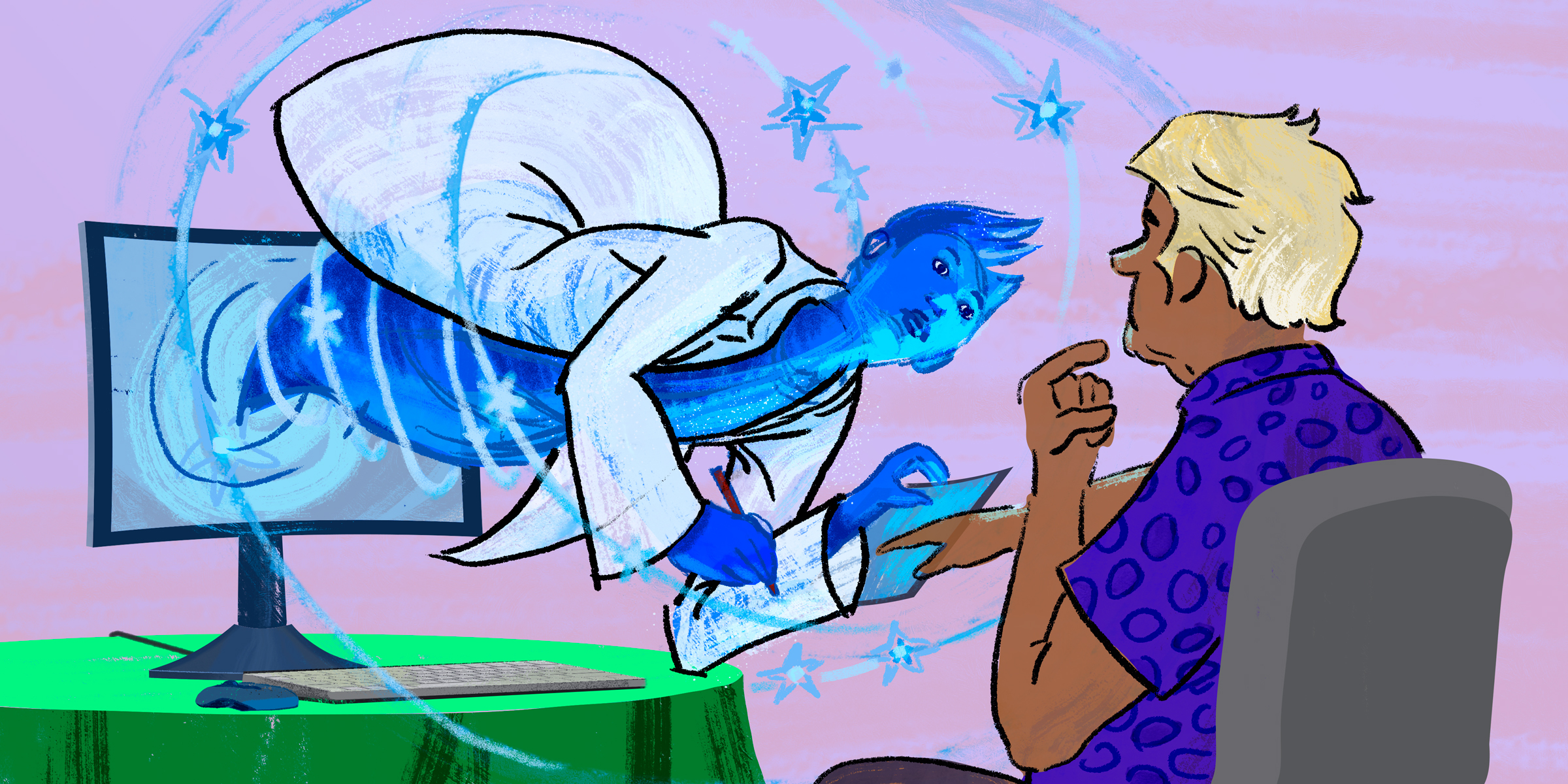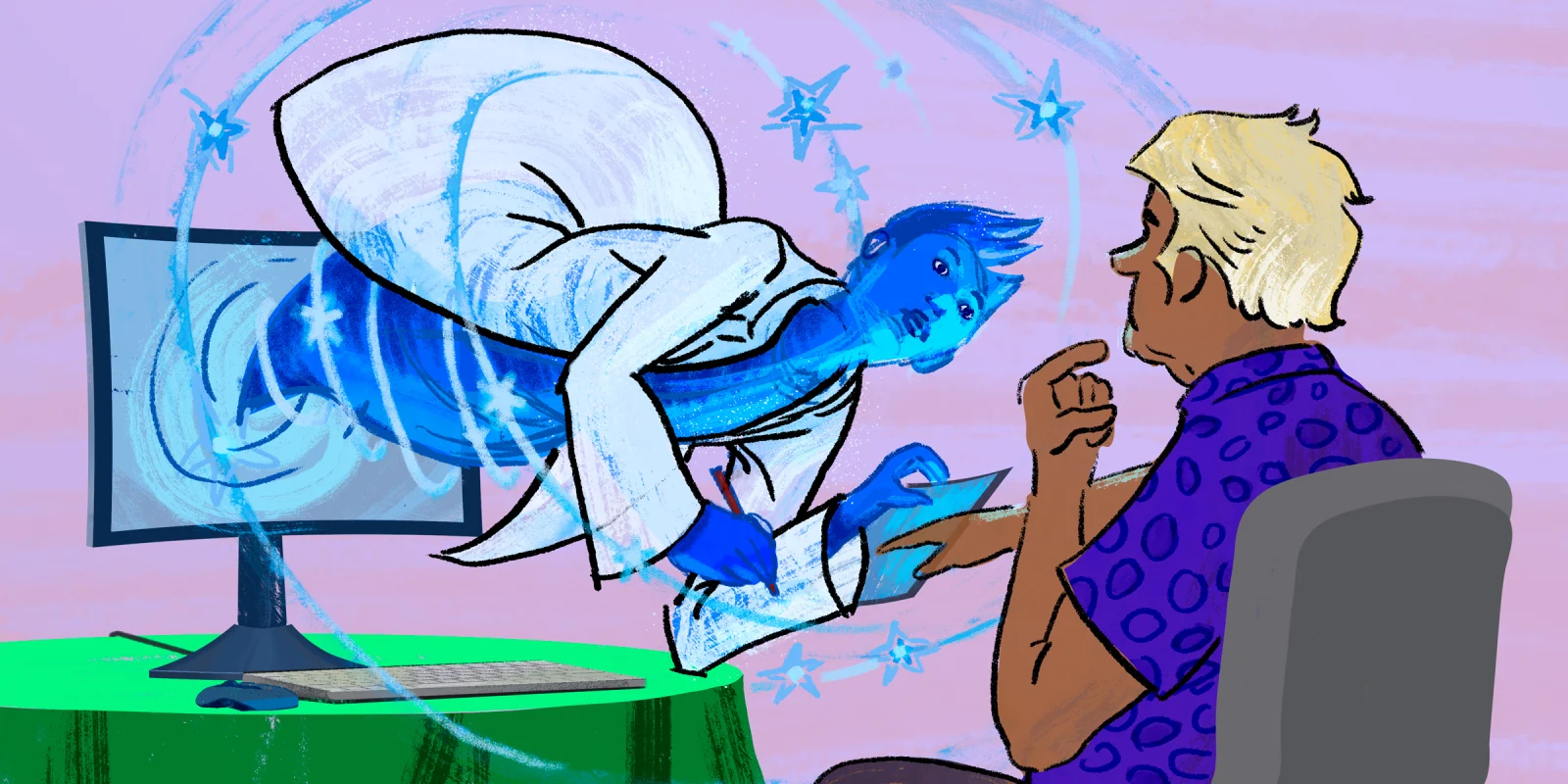
“Your turn,” my husband remarks, emerging from our basement. I hand him the baby, tell him who has napped and who has eaten, guiltily confess the amount of screen time I have already allotted halfway through the day for my 5 and 7-year-olds. I don my afghan and head to my makeshift office: a desk in the corner of our newly (incompletely) renovated attached garage. To comply with strict social distancing, we sent the construction workers away before the heater was installed.
My husband and I are primary care doctors. In the time of COVID-19, our work has rapidly evolved into three separate buckets: addressing focused needs of patients virtually, skeletally staffing our offices for urgent in-person needs, and assessing high-risk and moderately ill patients with respiratory complaints at carved out spaces and designated clinics. This transformation happened at a dizzying speed and with remarkable synergy across the country.
I load up my computer and log onto our virtual platform. I can see my patient has created a log-in earlier. I wait with anticipation and within a few minutes a green button appears indicating I can start the call.
“Hi!” we both exclaim, more excitedly than our usual greeting. We are delighted by our ability to activate this new technology. I am so genuinely glad to be able to see her face.
While the skeletal staffing and respiratory units are different, the virtual visits are perhaps the most palpably transformed. The space around us is quieter. We are not riding the buzz of the energy around us – the sweep of her rushed commute to the office, the countdown of the parking meter, the knock of a medical assistant with an EKG, the press to move to the next room. Epic is not cluttered with hidden data points to review – there are no vital signs, no reconciled medications, no pre-visit surveys, no potential explosions in the scrolling minefield. We will not give any immunizations today. Routine testing like mammograms and colonoscopies will not be conducted and therefore do not need to be ordered or discussed.
I meet dogs and glimpse family photos. Patients see the backdrop of my newly painted basement walls, hear the shrieks of my young children when they break through my husband’s defensive line. While we are further apart, our shared domestic spaces somehow bring us closer. And yet it is more than that. Perhaps it is the forum of the video chat that stretches our small talk well beyond the initial first few minutes. Perhaps it is the overwhelming crisis that dwarfs all minor complaints and focuses us on a new set of priorities: Are you safe? Do you have enough food and medications? How are you adjusting your life in the time of coronavirus? Here, too, our roles are softened. While I share what I have learned from countless hours reading and thinking about COVID-19, we occupy the uncertainty of this unprecedented time together.
I think to myself, there are lessons here in the time of COVID-19. The lessons come to me scattered and fuzzy in-between responding to patient messages, feeding children, scrambling family schedules, and video-chatting with loved ones. The health system as an organism made up of brilliant and dedicated individuals has a remarkable ability to move towards what is right in times of crisis.
With a lens only on what is necessary and the shedding of what is reimbursable and profitable, we can do great things. Our meetings can be shorter. Our emails fewer. Our contact with patients more focused and meaningful. We can be flexible to meet the needs of our patients and our families. Everyone can contribute. Our instincts can and should guide us in what we keep and what we let fall away. Despite our immense sense of urgency in this time of crisis, we start with asking “How are you?” in a way we have never asked before.
“Goodbye,” I say to my patient, making a point to look directly into the tiny green light of the camera so she perceives my eye contact. I know on the other side we will greet each other again first with “It’s nice to see you in person” and a strange recognition of how we took it for granted for so long. Our primary care homework will have piled up. Yet I wonder if we might carry some of the quiet into our new shared space.
I shake off the indulgence of thinking about the other side; right now, there is only work to be done.
Sarah Matathia, MD, MPH, is a family practitioner at Massachusetts General Hospital. She is a Public Voices Fellow with The Oped Project.
Illustration by Jennifer Bogartz
Click here to see more perspectives on COVID-19 from the Doximity network.
Click here for up-to-date news about COVID-19 on Doximity.







